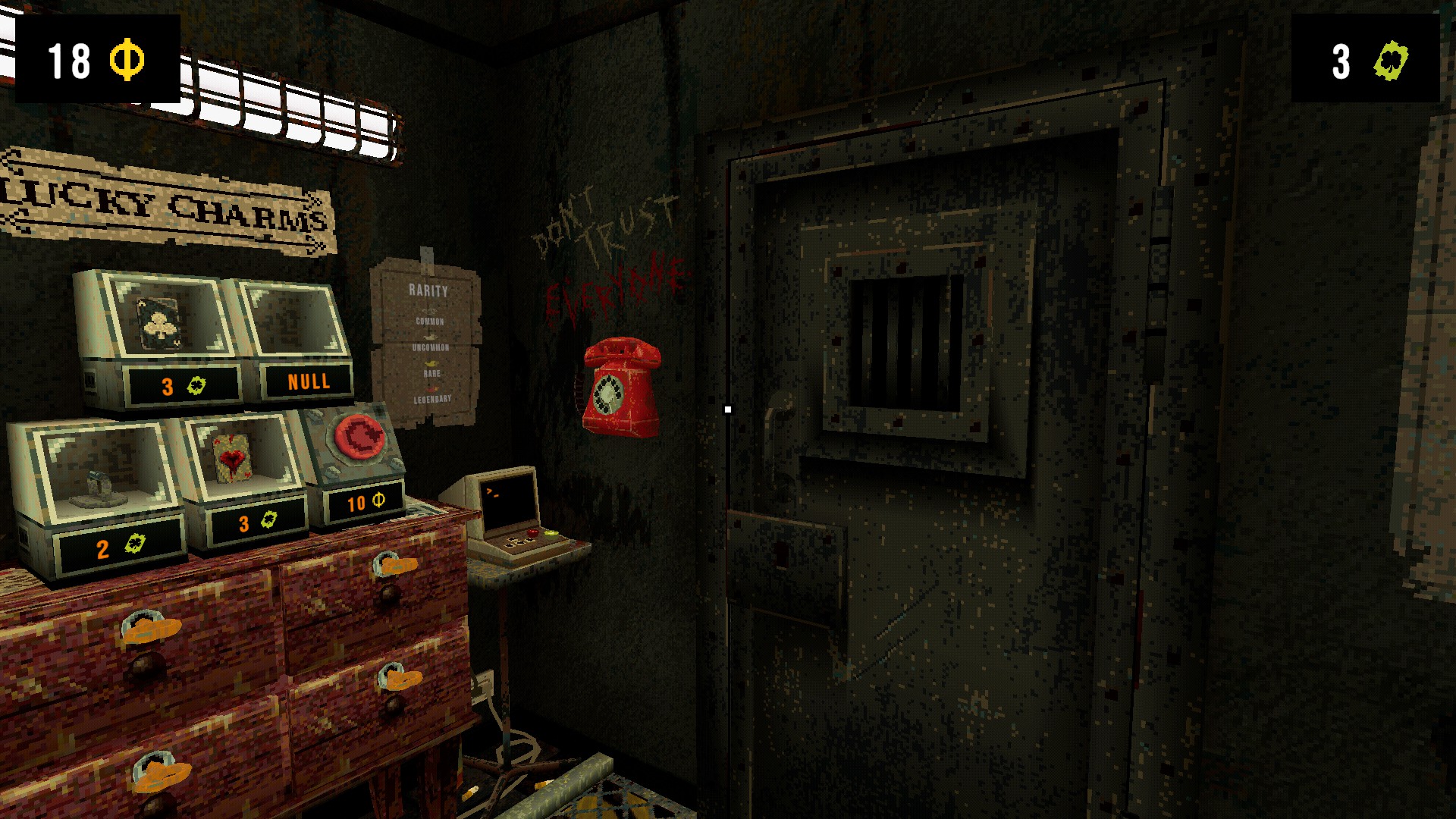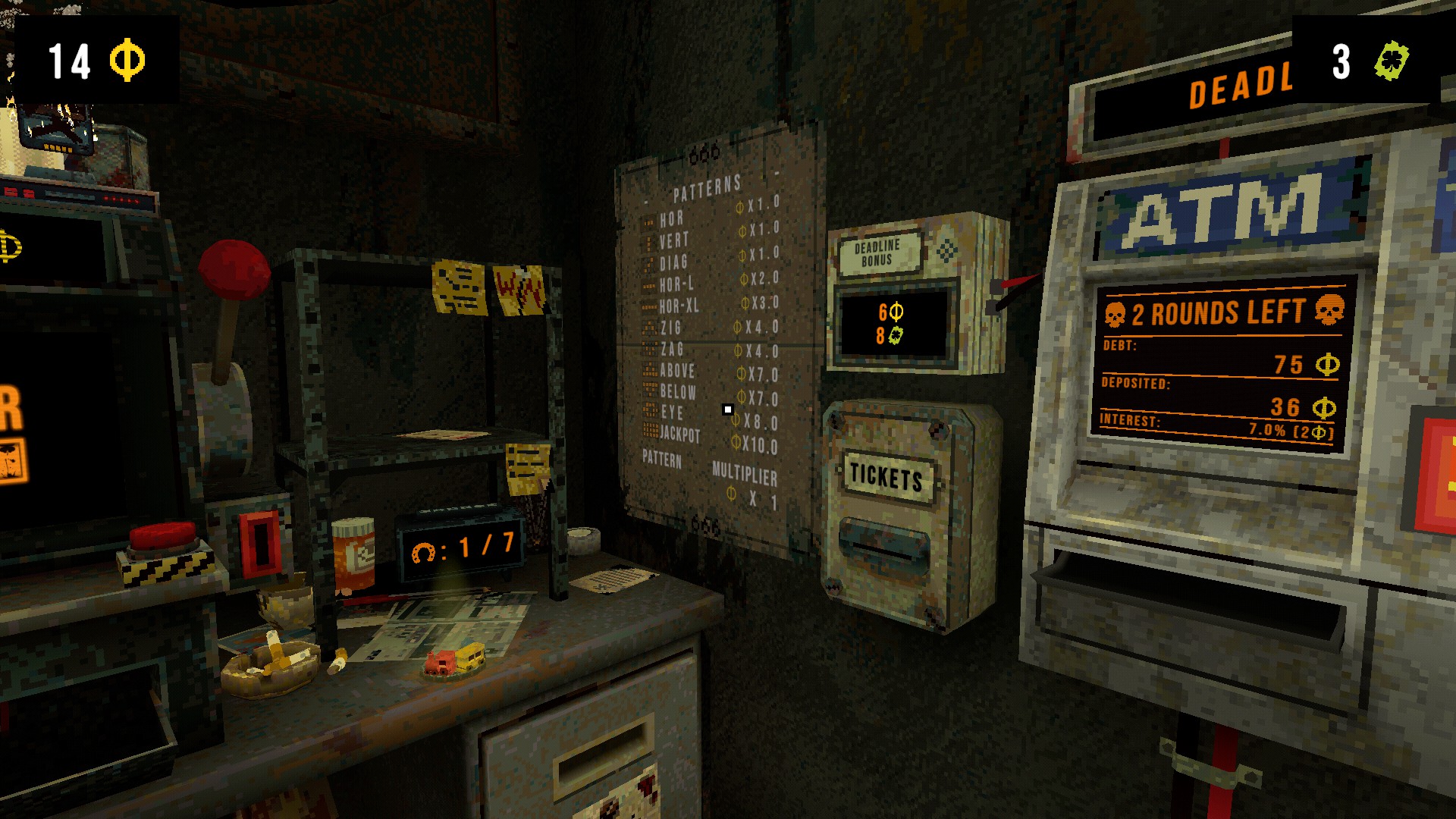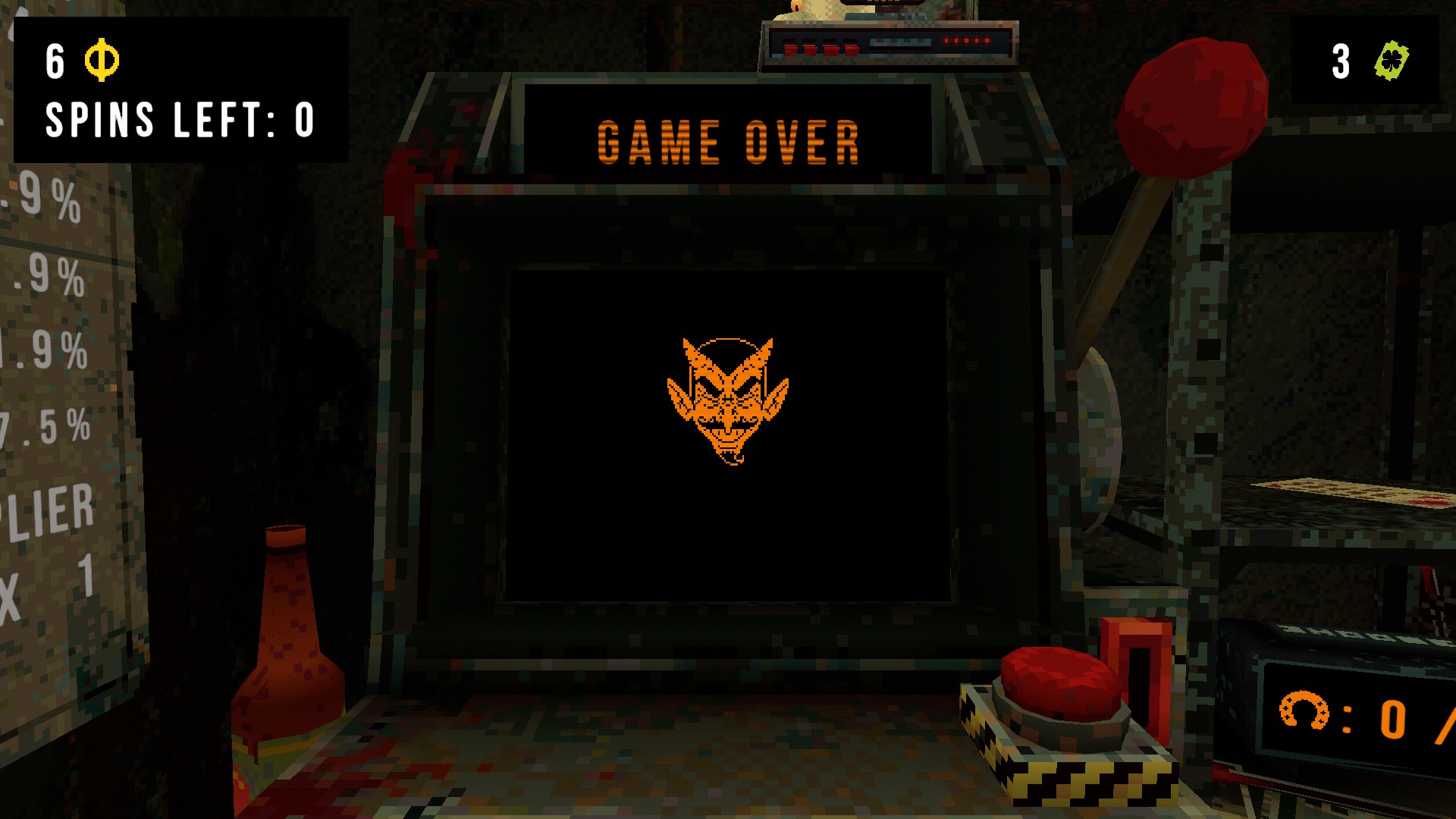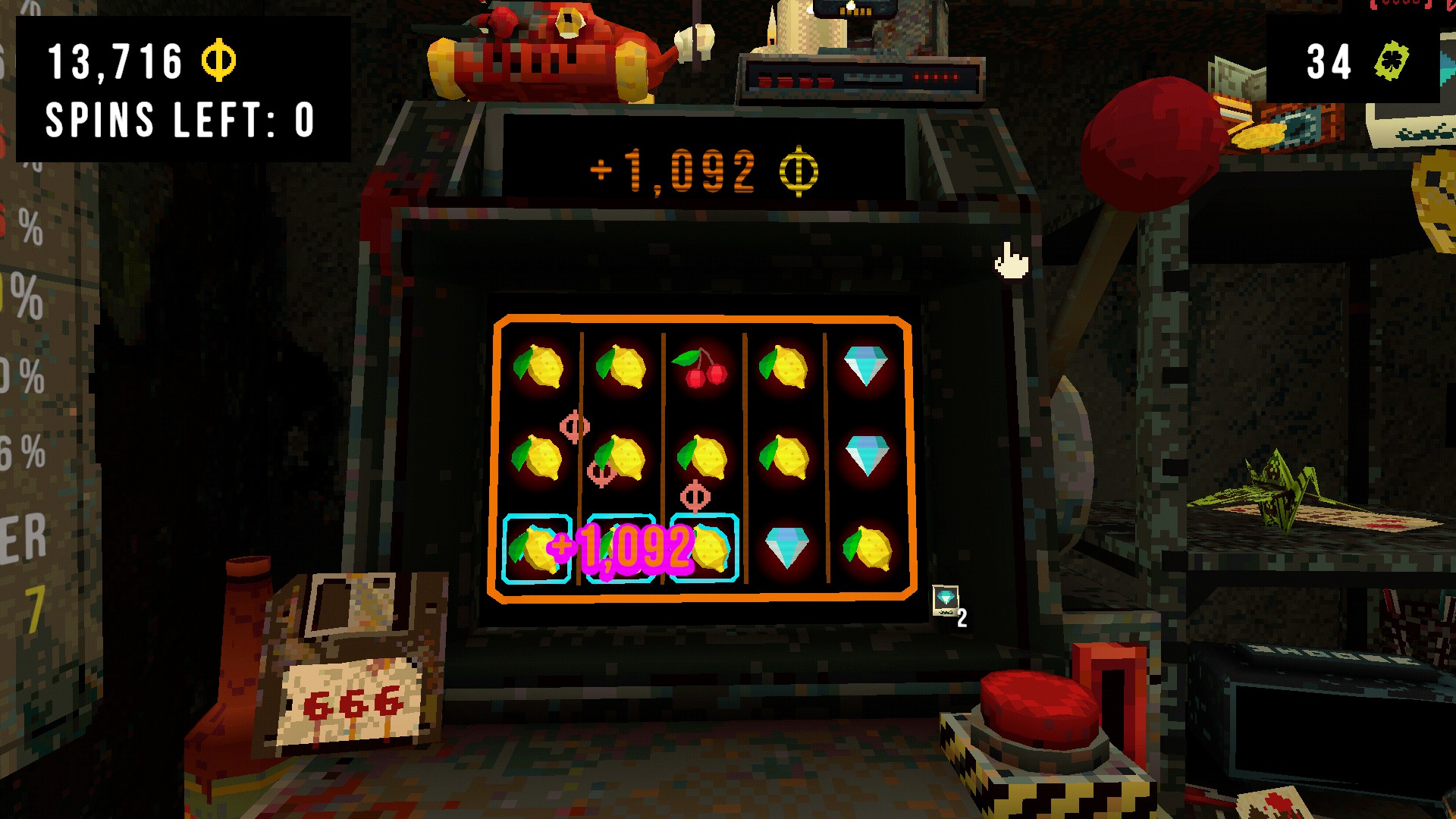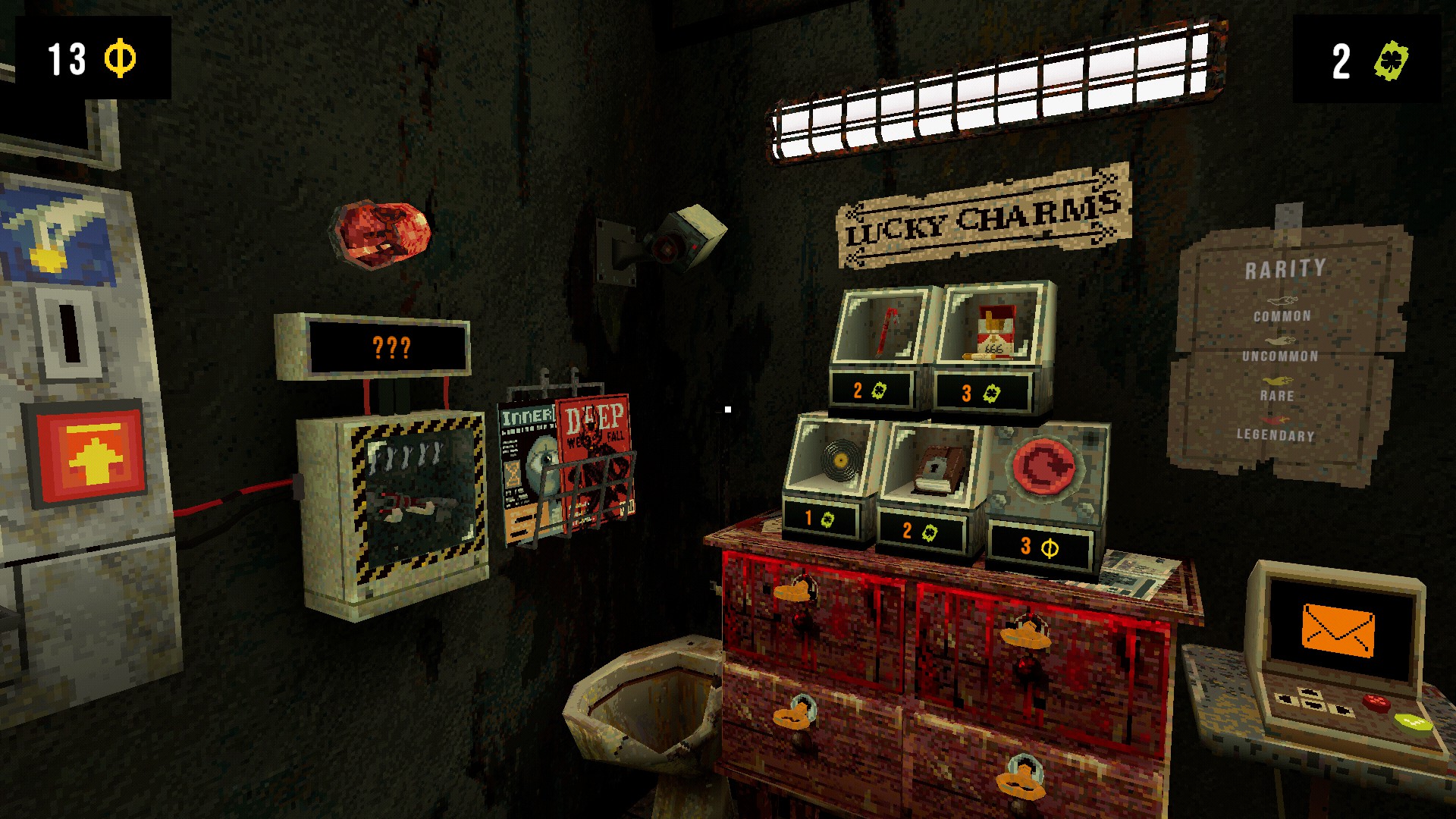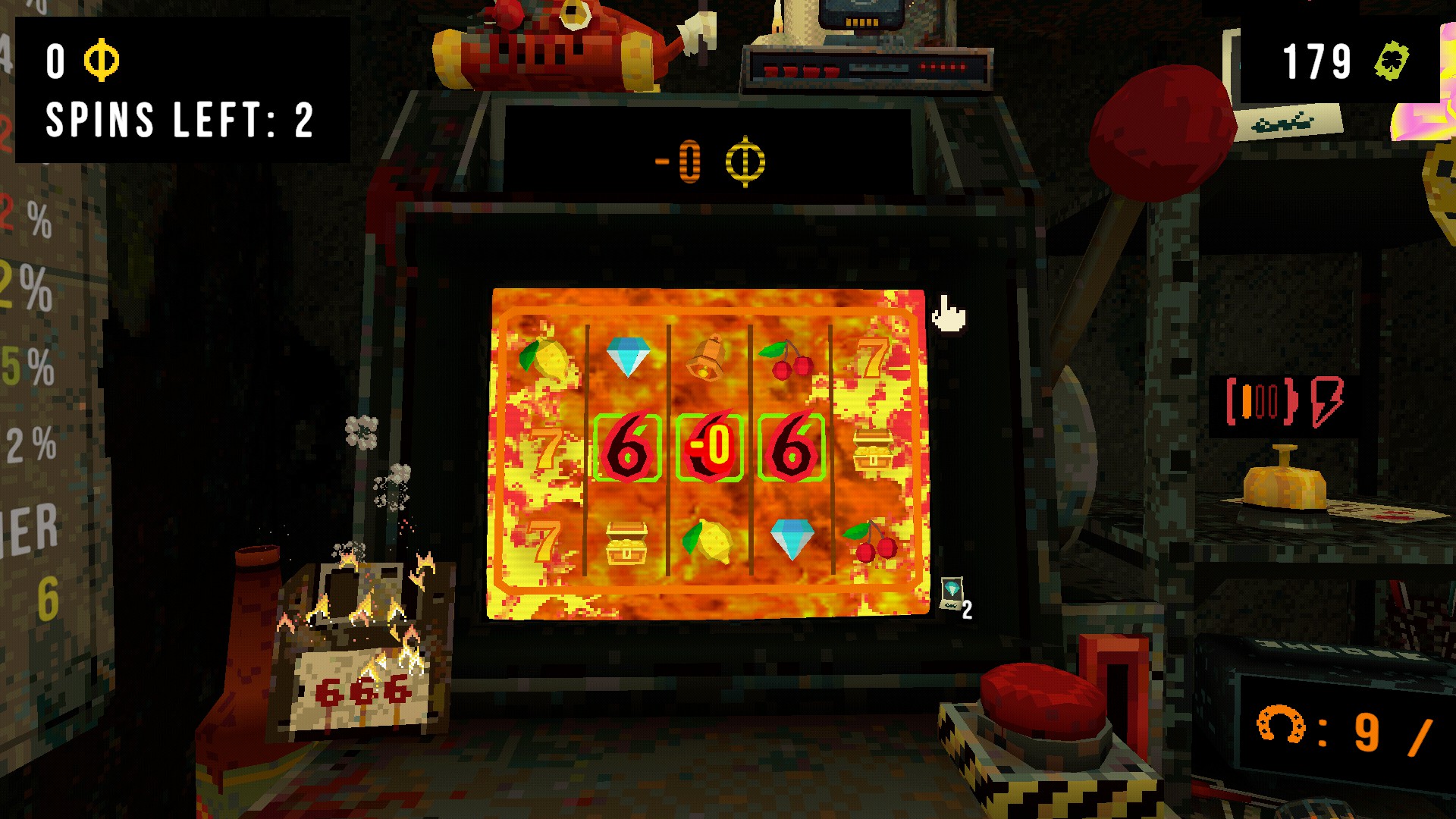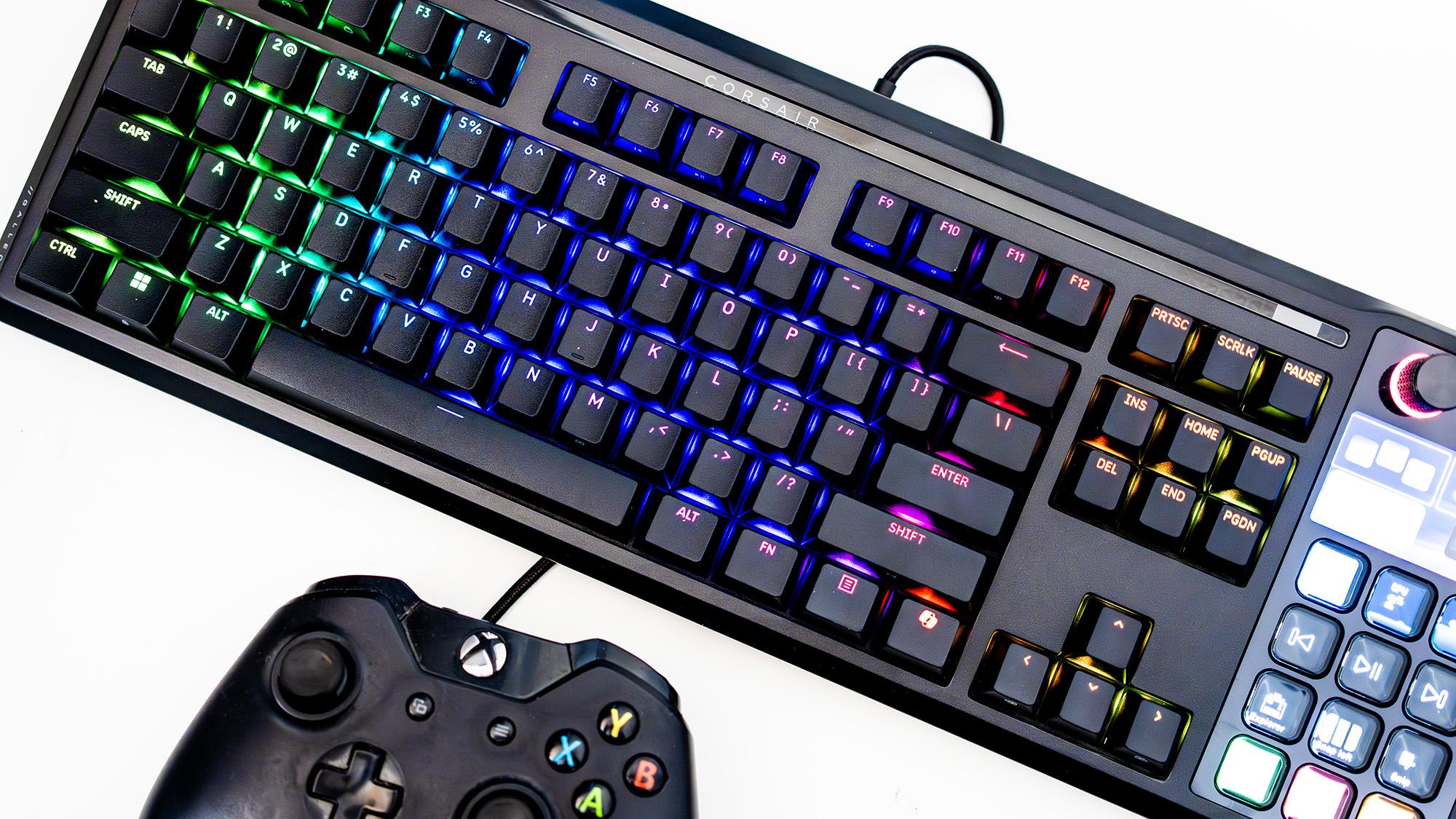Our Verdict
The combo of roguelikes and gambling should probably be more addictive than this.
PC Gamer's got your back
What is it? A Balatro-like roguelike with a slot machine instead of a deck of cards.
Release date September 26, 2025
Expect to pay $10 / £8.50
Developer Panik Arcade
Publisher Future Friends Games
Reviewed on Nvidia Geforce RTX 3080, AMD Ryzen 9 5900X, 32GB RAM
Steam Deck Verified
Link Official site
In a post-Balatro world, everything is a roguelike. Mahjong? That's a roguelike. Minesweeper? It's a roguelike. Those weird coin pusher machines that are for some reason present in every English seaside town? You better believe they're roguelikes.
In that company, a slot machine roguelike seems almost obvious, though CloverPit certainly injects the idea with plenty of personality. Rather than a casino, you're sat in what appears to be some sort of prison cell (maybe in Hell?), with crispy, low-poly graphics selling the grungy feel perfectly.
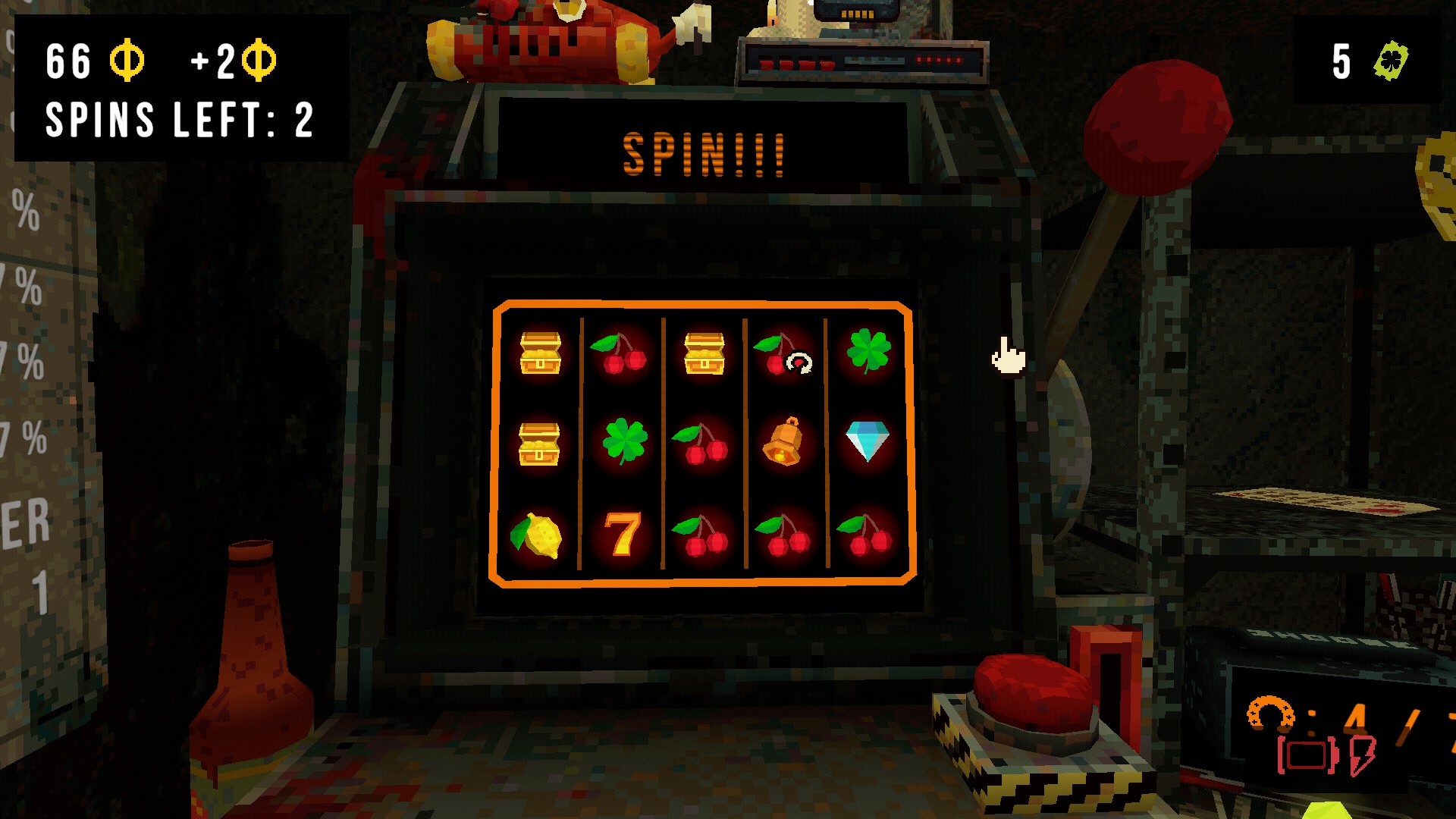
Like Balatro, the game is based around ever-increasing antes, here called deadlines. You get three rounds to try and earn enough money to hit the target, by playing spins on the slot machine. Succeed, and you move on to a new, higher deadline. Fail, and the floor grating opens up below you, dropping you into endless darkness.
When you first start playing, you do feel helpless to the cruel whims of the machine. Cranking the arm over and over hoping a row of diamonds comes up lays the repetitive randomness of roguelikes a little too bare, perhaps.
Soon, however, you start discovering how to tip the odds in your favour. The game is deliberately opaque, with minimal tutorials and UI—you literally need to start looking around the room you're trapped in to discover key information and mechanics, often in places that aren't immediately obvious.
I'm a little torn on that. There is a fun, almost puzzle-solving aspect to the process, and the hostility of it definitely feeds into the game's cheerily oppressive atmosphere. But it does leave you stumbling in the dark during those early runs, when you most want the game to just hook you in.
Regardless, if you stick with it, you'll learn fast. Lucky charms, purchasable between rounds, impart special effects on your machine, such as granting extra spins, increasing the odds of particular symbols, or buffing your luck for one spin. Cash earned on the machine can be spent to re-roll the lucky charm shop, or deposited in the ATM to earn interest between rounds. After each deadline, a mysterious phone call offers you a choice of bonuses or trades.
Keep up to date with the most important stories and the best deals, as picked by the PC Gamer team.
Add it all together, and the synergies you're looking for start to appear. One run, you might focus on stacking the value of the rarest symbols and then gathering as many luck bonuses and extra spins as you can, hoping for big jackpots.
In another, you might try the opposite, tilting the machine towards the relatively common cherry and lemon symbols for low value but reliable pay-outs. You could combine that with a charm that buffs your interest, and another that pays out a portion of your interest every time you get 3 or more patterns in a spin. Ka-ching!
As you play, you unlock more of these options, and your strategies can get steadily weirder and more convoluted—but it's here that the seams start to show, too. Runs aren't won or lost on the randomness of the slot machine, that's an illusion. But they can be won or lost on the randomness of what lucky charms and telephone perks you're offered, and the more new things you unlock, the more the pool of options is diluted with niche synergies that make it harder to fish for what you need.
And unfortunately, I don't think there's enough depth to make all that fishing worth it in the long run. There's fun to be had with CloverPit, but not the seemingly endless kind found in the best roguelikes. After less than 10 hours I felt like I'd already seen everything I needed to see and understood all the key strategies, and I just haven't felt that urge to come back again and again for 'one more run'.
What's the story?
What I hoped would keep me hooked is CloverPit's subtle narrative elements. Its satanic atmosphere and mysterious premise draw clear inspiration from Daniel Mullins' Inscryption and Pony Island, games whose seemingly shallow mechanics are just the lead into stranger, more story-driven adventures. At first, CloverPit seems like it might offer the same, with hints at secrets to be discovered and the possibility of freeing yourself from the room.
Unfortunately, though there are some threads to pull at, they don't unravel into anything substantial. Pursuing them is more grind than intrigue, and though they ultimately culminate with multiple endings, it's all too vague and slight to feel like a satisfying payoff for your efforts.
Ultimately, those core slot machine runs are all CloverPit really has to offer. As a bite-sized curiosity between more filling roguelikes, it's decent fun—there's enough strategy, buoyed up by the charmingly grim vibes, to see you through a few winning runs and the first ending scene. But even if you were in a Vegas casino with no clocks or windows, you'd walk away from this slot machine long before losing your life savings.
The combo of roguelikes and gambling should probably be more addictive than this.

Formerly the editor of PC Gamer magazine (and the dearly departed GamesMaster), Robin combines years of experience in games journalism with a lifelong love of PC gaming. First hypnotised by the light of the monitor as he muddled through Simon the Sorcerer on his uncle’s machine, he’s been a devotee ever since, devouring any RPG or strategy game to stumble into his path. Now he's channelling that devotion into filling this lovely website with features, news, reviews, and all of his hottest takes.
You must confirm your public display name before commenting
Please logout and then login again, you will then be prompted to enter your display name.
